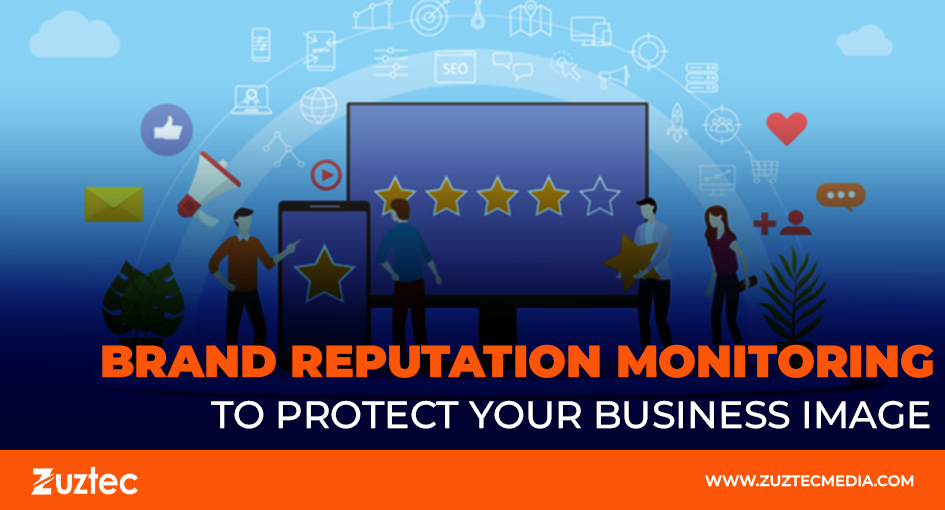
Brand Reputation Monitoring To Protect Your Business Image
In today’s digital era, where information spreads instantly and opinions form quickly, protecting that reputation is more critical than ever. Consumers research companies before making decisions, often relying on online reviews, social media posts, and news coverage. Negative content, even if rare or untrue, can severely impact public perception. This makes brand reputation monitoring a crucial part of any company’s marketing and risk management strategy.
Monitoring your brand’s reputation effectively entails paying careful attention to what people are saying about your company online. Everything affects your public image, from blog posts and customer reviews to social media conversations and search engine rankings. Businesses that monitor their reputation can react to feedback promptly, resolve issues before they escalate, and take control of how their brand is perceived online.
Many businesses underestimate how quickly a reputation can be damaged. A single viral complaint, a misleading article, or a string of negative reviews can erode trust and result in lost revenue. On the other hand, consistently managing and improving your digital presence builds credibility, loyalty, and long-term success. The goal of monitoring your brand’s reputation is not just damage control but also building a trustworthy image that draws in both customers and partners.
Brand Reputation Monitoring Builds Trust And Customer Loyalty
To understand the value of reputation monitoring, you must recognize the power of perception. Customers are more likely to choose a brand that appears trustworthy, even if it’s slightly more expensive. That trust is formed through online visibility, reviews, and digital conversations. Monitoring tools help you keep track of what people are saying and how your brand is being presented across platforms like Google, Facebook, LinkedIn, and Twitter.
Companies that take monitoring seriously often have an advantage in customer service. They can respond to complaints in real time, thank customers for positive feedback, and engage in conversations that build relationships. This proactive approach shows the public that the company is responsive and cares about its audience. I
There are various components to an effective monitoring strategy. Search engine alerts can notify you when your brand is mentioned in a new article or blog. Review management platforms collect feedback from multiple sources so you can see how your ratings change over time. Social listening tools track conversations on public social media profiles, giving you insight into customer sentiment and trends.
Monitoring Reveals Opportunities For Content And Improvement
While the primary goal is to protect your reputation, monitoring also uncovers areas where your brand can grow. If customers repeatedly mention the same issues or praise specific features, those comments can guide your product development and marketing strategies. You might discover that customers love your speed but find your support lacking or that your brand is known for affordability but not for quality. This kind of insight is invaluable.
Brand reputation monitoring also helps identify influencers or loyal customers who naturally promote your business. These people can become brand advocates, further strengthening your presence online. Engaging with them in meaningful ways, such as offering discounts or reposting their content, can build long-term relationships and brand loyalty.
During competitive analysis, monitoring tools can be used to see how your brand stacks up against others. What are people saying about your competitors? What complaints are frequent, and how can you avoid making the same mistakes? By monitoring both your reputation and your competitors’, you can position your brand more effectively and find openings in the market to differentiate yourself.
Managing Crises Through Monitoring And Fast Response
Every brand faces criticism at some point. What matters most is how quickly and effectively the business responds. The earlier a potential issue is detected, the faster it can be addressed before it spreads or worsens. Immediate action shows responsibility and professionalism.
Consider situations where misinformation spreads or a customer posts a viral video complaint. Without monitoring, you might not even know about the issue until it has done serious damage. But with tools that alert you to spikes in brand mentions or sudden sentiment changes, you can act within minutes. A well-worded response, clarification post, or apology can help turn a negative event into a moment of transparency and growth.
However, brand reputation monitoring is more than a safety net—it’s a proactive approach to building and maintaining public trust. In an age where every comment, review, or tweet can influence perception, staying on top of your digital image is essential. By using monitoring tools, engaging with feedback, and learning from what’s being said, businesses can protect their reputation and even turn criticism into growth. As competition increases and consumers become more informed, strong reputation monitoring isn’t optional—it’s a key to long-term success.

